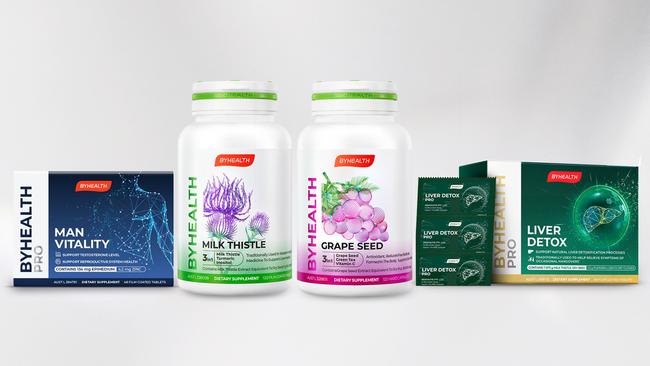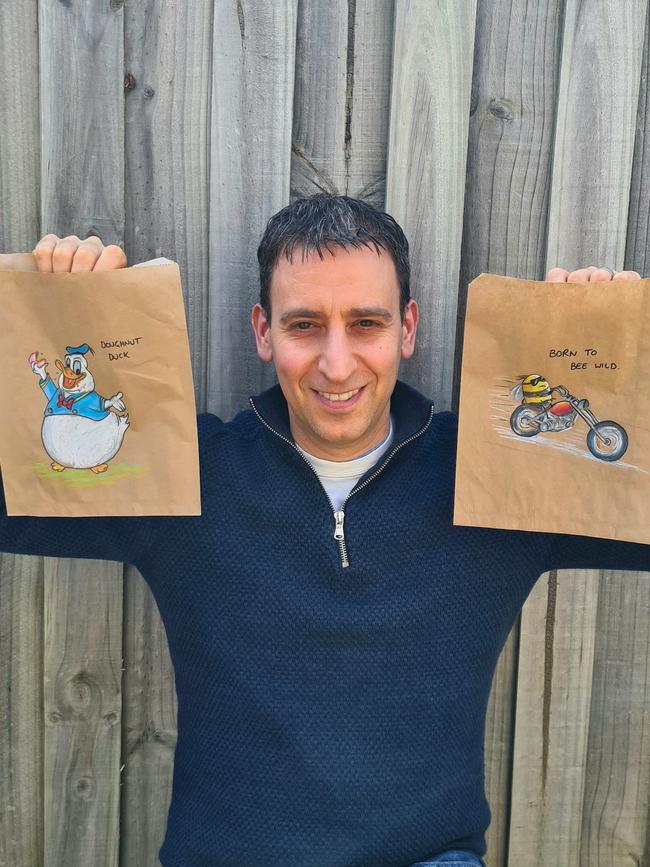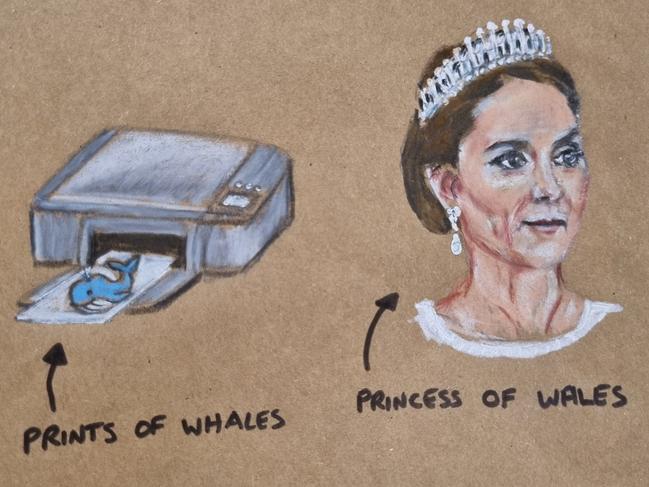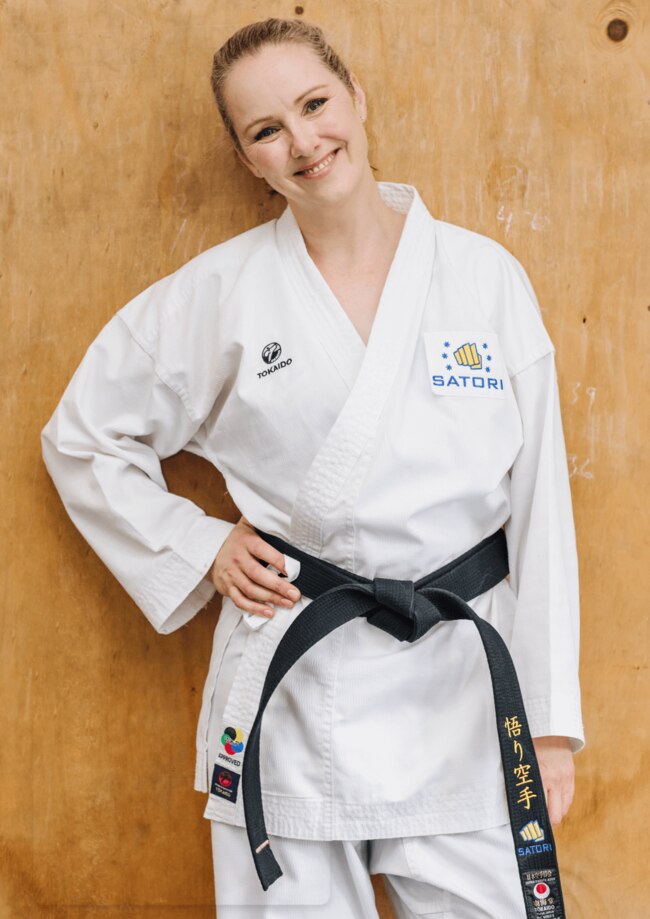Meet the Australians discovering untapped potential in their 40s
Your forties are a decade of discovery, when you regain the time and the energy to develop your passions. The results can be unexpected.

-
-
Hobbies have seen a big uptick in the last four years. According to the Australian Institute of Family Studies, more people have embraced creative and active pursuits since 2019 and many have stuck.
This trend is closely linked to mental and physical well-being. As such, it’s not just valuable from a leisure perspective, but from a commercial one. In fact, the concept of untapped potential presents a crucial new opportunity for health brands launching new products into the Australian market.
BYHEALTH is one of them. It’s the biggest supplement brand in China and it’s currently entering the Australian market. So far, it has four hero products: Milk Thistle, Man Vitality, Grape Seed and Liver Detox. It’s investing a huge amount into research and development, with 500 scientists in house, and it’s built its own factory in Melbourne to guarantee quality and transparency.
The target market is people aged 40 and above, who are rediscovering the time and energy they need to prioritise their health and pursue their passions, and its angle is “unlocking potential”.
It’s a strategic play because many people in this category are doing remarkable things.
Take Dave Blumenthal, for example. He’s a businessman by day, working as CEO of a private family business focusing mostly on property development. It’s a decidedly left-brain pursuit, wrangling numbers, negotiating deals, analysing reports, overseeing transactions, and developing strategies.

But by night, the 47-year-old father-of-three is the Sandwich Bag Dad.
Mr Blumenthal cartoons on the brown paper bags his three daughters take to school, and while it started as a cute way to connect with his children, his cartoons have taken on a life of their own. His children’s teachers encouraged him to start posting them to social media and within a few short years his artworks have been featured at the National Cartoon Gallery, he’s hosted an exhibition at Hawthorn Town Hall in Melbourne’s inner-east, and he’s even created a coffee table book.
“I always used to love drawing as a kid,” he said. “But towards the end of school and university, art completely dropped off the radar. I wanted to be a lawyer, I was always doodling in lectures, but I didn’t do anything with it until my eldest daughter started school. I find it relaxing, it’s a wonderful way to wind down after a stressful day and it means I can use the other side of my brain.”

Over the years, the pun-filled cartoons have increased in complexity and sophistication. Mr Blumenthal ties the designs into things his children are learning, whether that’s three-dimensional shapes, Shakespeare, or news events. The ingenuity of his creations has earned him a passionate social media following, but when asked about his unusual medium, he simply laughed.
“It’s a lot of bags, a lot of dad jokes,” he said. “But it’s also cheaper than canvas.”
Hobbies are important at all stages of life, but research from Allianz reveals 92 per cent of people above the age of 35 currently say their hobby is an important part of their identity. Almost 90 per cent agree that it has helped them learn new skills, while almost 60 per cent agree that it’s helped them make new friends and connections. Most importantly, almost all of the survey respondents agreed that their hobbies were important for relieving stress and promoting good mental health.
That’s certainly the case for Dr Jodi Richardson, a Melbourne-based anxiety expert. Though she makes her living as a professional speaker and author, she started karate at the age of 40. She quickly worked her way up to a black belt (first dan) and won two gold medals in competition.

“I was studying the science of happiness at the time and I recognised I was missing something in my life,” she said. “I’d pursued so much in terms of professional achievements, and I realised it didn’t all have to be about work. The idea was to find a flow, to sink into something unrelated to my career.”
However, she admitted karate was quite a shock to the system - requiring blood, sweat, and tears.
“Competing was terrifying and exhilarating,” says the mother of two. “My son was going to a competition, I figured I’d done years of training by then, I might as well give it a go… I’m no superstar karate athlete, and honestly I was afraid of being punched in the face and unable to work, but I figured I’d go on the attack instead of waiting to defend. I really felt like I was a woman on fire.”
One competition was enough, she admitted, but she loved the fact that she found something just for herself. After a tough day, she could leave the house, punch bags, practice kicks, and re-focus.
“There’s so much to learn, your mind can’t be on anything else,” she said.
BYHEALTH sources premium ingredients from around the world, using research-backed formulas to create high quality nutritional supplements. Its goal is to support healthy brain and body function.
“Nutrition supplements are important because they provide additional nutrients that may be lacking in a person‘s regular diet. They are designed to complement a healthy eating plan and support overall health and well-being,” said Jesse Gu, Head of Sales and Marketing at BYHEALTH.
It’s a natural alignment to inspire people to unlock their mental and physical capabilities.
After all, the stories prove if you give yourself a chance, the results may surprise you.
-
BYHEALTH’s Nutrition Pro+ range is made from quality ingredients sustainably sourced from 23 countries, backed by intensive scientific research, and produced in a transparent factory in Melbourne. This is the future of nutrition. Learn more.
-
The Australian’s editorial staff was not involved with the production of this content.
Dave Blumenthal and Dr Jodi Richardson are independent with no brand affiliation.
This content was produced on behalf of BYHEALTH. Read our policy on commercial content here.
-


